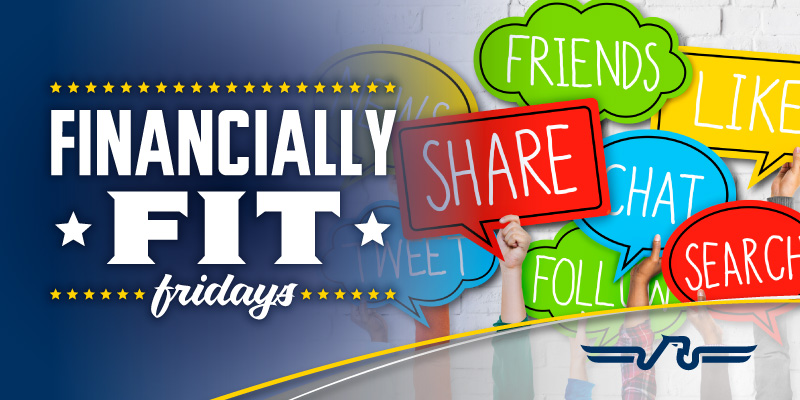Fraud Prevention: Staying Safe on Social Media
Modern email accounts will filter out most phishing attempts and spam messages, but social networking sites like Instagram, Facebook, Twitter, Pinterest and Snapchat offer scammers a new path to your personal information, financial accounts, and identity. Here are some tips on how to stay safe while using social media.
Safe setup
No matter which service you’re using, check your privacy settings. Facebook, for example, allows you to customize who can see your posts, who can send you friend requests and if you want your profile to show up in search engines. Leaving your profile completely public is like keeping all the blinds open on your house. Use strong, unique passwords for each profile and keep them updated. Only fill out the required fields when registering. The less personal details you share online, the better.
Stay on guard
Don’t accept every friend request that comes your way on social media. Some fraudsters will create fake profiles or use the names and pictures of people you know to fool you. Examine each profile and if something looks fishy, delete the invitation. Avoid clicking on suspicious links, even if it’s from a friend or family member.
Be skeptical of third-party apps that request too much personal information or require unnecessary permissions, specifically when it comes to games and online quizzes. If you’re using a public computer, verify the “save password” box is unchecked when you log in to your profile and make sure to log out when you’re done—don’t just close the window.
Avoid oversharing
As exciting as it is to prepare for a vacation, resist the urge to post your upcoming travel plans online. This could alert the wrong people about when you’ll be gone and your home will be empty. Think twice before tagging your location while you’re out and about for the same reason.
Review each photo before uploading it to social media. Make sure you’re not accidentally revealing any information you don’t want to share, such as the name of your apartment complex or a friend’s phone number. And, it should go without saying, but never post pictures of your credit card, social security card or driver’s license online.
Be proactive
Talk to others in your household about internet safety. After all, one person clicking on the wrong link could put everyone else who uses that computer at risk. Make sure your smartphone is password protected if it is linked to your social networks. Report fraudulent social media profiles to customer support so they can delete the account.
If you suspect that your identity has been stolen, you should contact your financial institution immediately. We offer free identity theft recovery services to all of our America First Visa® cardholders, and will work with you until the issue is resolved. Stay safe out there!

